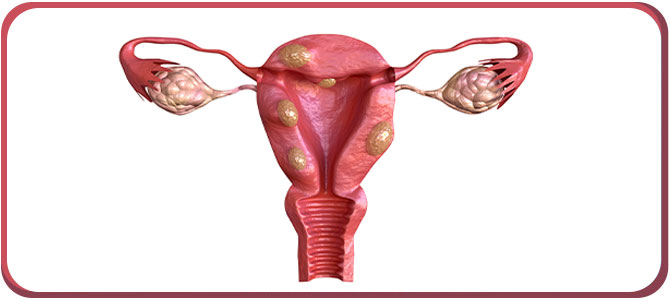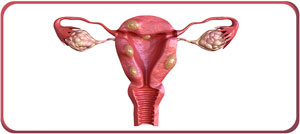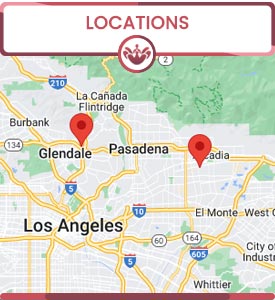What Happens If Fibroids Go Untreated?
Fibroids are benign growths that form within or close to the uterus (womb). The growths are formed of muscle and fibrous tissue and range in size. If left untreated, fibroids can lead to problems including massive bleeding and issues with fertility. Dr. Prema Kothandaraman at The OB-Gyn and Incontinence Center may assist you in removing a fibroid to prevent further complications and restore fertility. For more information, contact us today or book an appointment online. We have convenient locations to serve you in Arcadia, CA, and Glendale, CA.




Table of Contents:
Is it okay to leave fibroids untreated?
What damage can fibroids do to your body?
When should you worry about fibroids?
What are the symptoms of a fibroid tumor?
Fibroids are very common among those assigned females at birth as they form in or on the uterine walls and are associated with high levels of estrogen and progesterone. They are typically non-cancerous and can often go unnoticed as the small fibroids do not often lead to symptoms. Larger fibroids are most often associated with pain and bloating that are localized to the abdomen.
While it is rare for fibroids to be cancerous, treatment is highly recommended as leaving them untreated can lead to a variety of complications and discomfort as the fibroid is likely to continue growing. When left untreated, fibroids may continue to grow to the point of requiring surgery for removal if they start to cause severe pain or heavy bleeding. They will also often lead to increased pain in the pelvis and continuous heavy bleeding that can cause anemia. Surgery may also be required if the fibroid starts to block blood vessels, causing myoma twisting. If the fibroid is applying continuous pressure on the bladder, patients may also develop urinary tract infections as the bladder is unable to fully empty. In patients who are pregnant, untreated fibroids can continue to grow substantially and may lead to complications such as premature birth, requiring a c-section, and heavy bleeding following childbirth.
Most complications associated with fibroids can be effectively managed or eliminated by having the fibroids treated. When left untreated, the fibroids come with their own symptoms but also lead to other complications to both your physical and mental health, particularly in regards to pregnancy and labor, with those who are pregnant and give birth while having untreated fibroids being at an increased risk for preterm labor, breech birth, abnormal labor, and lower birth weight. Fibroids have also been shown to lead to increased difficulty in becoming pregnant, increasing the risk for complications with fertility. The location of particularly large fibroids can lead to problems with the ureter and bladder, causing urinary tract infections and damage to the kidneys when left to continue growing. Fibroids also tend to cause heavy bleeding, often resulting in patients developing anemia and the associated symptoms due to low levels of iron present in their blood. Additionally, fibroids can quickly take a toll on your mental health due to the impact that the symptoms and associated complications will have on your quality of life.
The development of fibroids is incredibly common among those who are assigned female at birth, particularly until they have reached pre-menopause. Many people can have fibroids and not even realize it due to a lack of symptoms, and there are many cases in which no treatment is fully required to remove the fibroids, it is only necessary for managing symptoms. However, the fibroids can continue to grow and lead to worsened symptoms and complications, at which point they will require medical attention to have them properly treated. They are much easier to treat when caught early, so if you are experiencing symptoms of fibroids, it is highly recommended that you seek medical attention to prevent them from worsening. Some symptoms that are indicative that medical attention is required for fibroid treatment include:
• Increased quantity and duration of menstrual bleeding;
• Increased frequency of urination or feeling as if the bladder does not empty entirely;
• Pressure within the rectum;
• Decreased appetite and constant feelings of fullness;
• Abdominal expansion that increases the size of the waist;
• Problems with fertility;
• Vaginal bleeding in between periods as well as irregular menstrual bleeding
• Diarrhea.
Only really the larger fibroids will elicit symptoms and require treatment as the small fibroids will often only require regular observation from a health care provider. The symptoms that are commonly experienced in larger or growing fibroids include:
• Increased bleeding and pain during your period as well as bleeding in between periods
• Pain experienced during intercourse
• Increased frequency of urination or inability to empty bladder
• Constipation or pressure on the rectum
• Pain in the lower back
• Feelings of bloating in the abdomen
• Chronic vaginal discharge
These symptoms will vary in frequency and intensity from patient to patient but should be assessed by a healthcare provider as early as possible for ease of treatment. Dr. Prema Kothandaraman at The OB-Gyn and Incontinence Center provides a secure and effective treatment plan to overcome discomfort and bleeding resulting from fibroids in the uterus. For more information, contact us today or book an appointment online. We have convenient locations to serve you in Arcadia, CA, and Glendale, CA. We serve patients from Arcadia CA, Glendale CA, Monrovia CA, Pasadena CA, Los Angeles CA, Burbank CA, and surrounding areas.


Additional Services You May Need
▸ Urogynecology
▸ Minimally Invasive Gynecology
▸ Monalisa & Medical Aesthetics
▸ Bioidentical Hormone Replacement Therapy
▸ Urinary Incontinence
▸ Pelvic Organ Prolapse
▸ Painful Bladder
▸ Urinary Tract Infection
▸ Genitourinary Syndrome of Menopause
▸ Female Sexual Dysfunction
▸ Urinary Retention
▸ Vaginal Laxity & Prolapse
▸ Postpartum Pelvic Floor Problems
▸ PCOD
▸ Bladder Prolapse Repair
▸ Urgent PC
▸ Fibroids
▸ Excessive Bleeding
▸ Pelvic Pain
▸ Birth Control & IUD
▸ Vaginal & Pelvic Infection
▸ Monalisa Touch
▸ STD
▸ TempsureVitalia
▸ Biote Pellet Therapy
▸ Topical BHRT
▸ Flexsure
▸ Rectal Prolapse Repair
▸ Tempsure ENVI
▸ Minimally Invasive Pelvic Surgery for Incontinence



